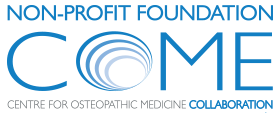CHRONIC PAIN, COMPLEXITY AND A SUGGESTED ROLE FOR THE OSTEOPATHIC PROFESSION
Chronic pain is common and has a substantial impact on individuals’ lives and the society in which they live. However, current strategies for managing chronic pain have low to moderate efficacy. We present a complexity informed model of managing chronic pain.
The authors propose that the biological, psychological and social factors influencing the experience of chronic pain can be framed as elements of a complex system (when ‘system’ is understood as a mental model of a set of relationships in the world) and discuss the advantages of this approach.
The ‘Learning Cycles’ framework of Human Learning Systems is suggested as an appropriate approach to managing chronic pain. There are five elements of the Learning Cycle; ‘understanding the system’, ‘co-design’, ‘experimentation exploration’, ‘embedding and influencing’ and ‘system stewardship’. The authors describe how this could be implemented in osteopathic practice.
The implications of a complexity approach with respect to evidence-informed as opposed to evidence-based practice is briefly discussed. Further, the opportunity for osteopathy to be at the vanguard of broader movement for change in public service and healthcare is highlighted.
Applying Learning Cycles to the context of managing chronic pain requires further research to explore its utility. Learning Cycles provide an action-research model that would supply the rich data by which to understand the efficacy of chronic pain management … ABSTRACT







